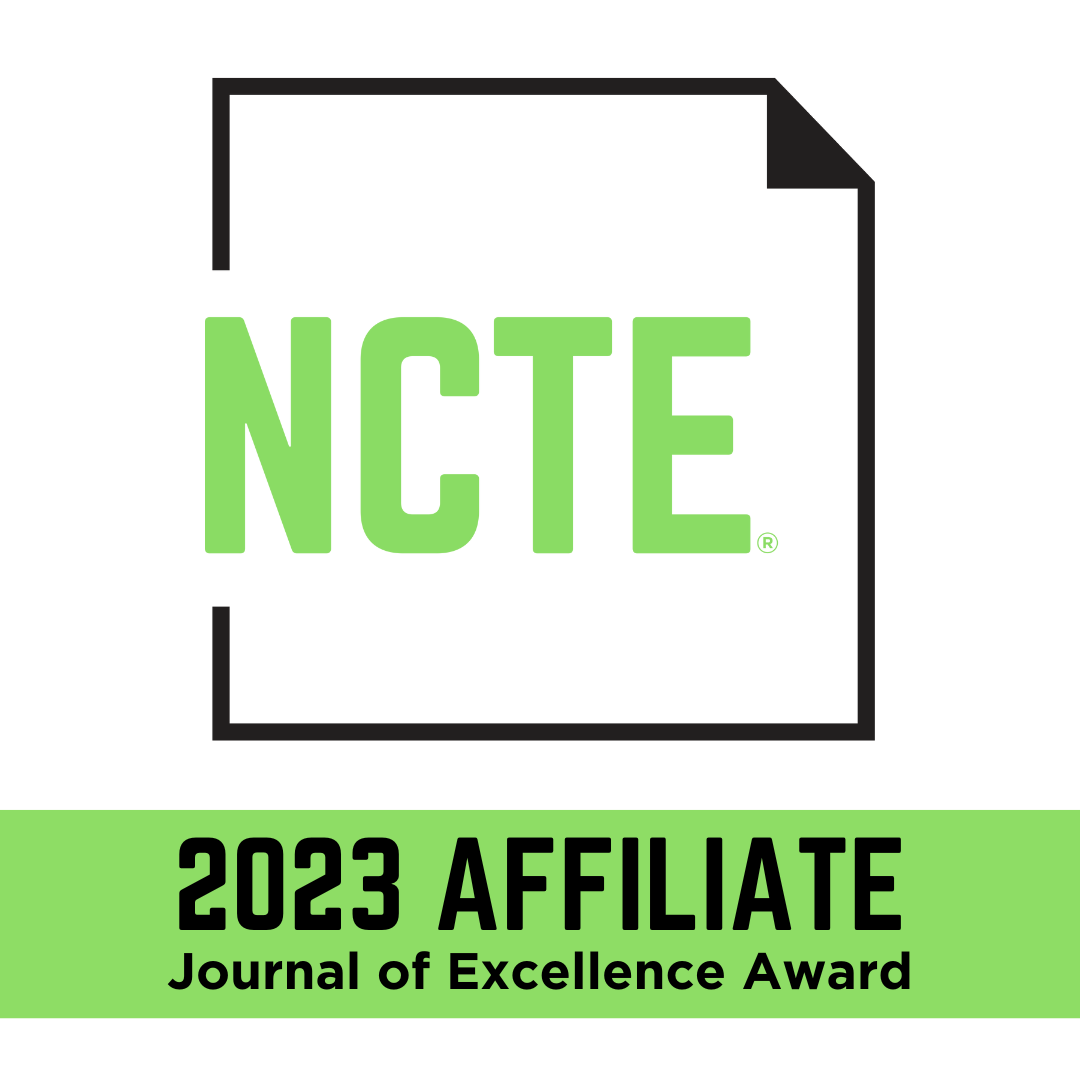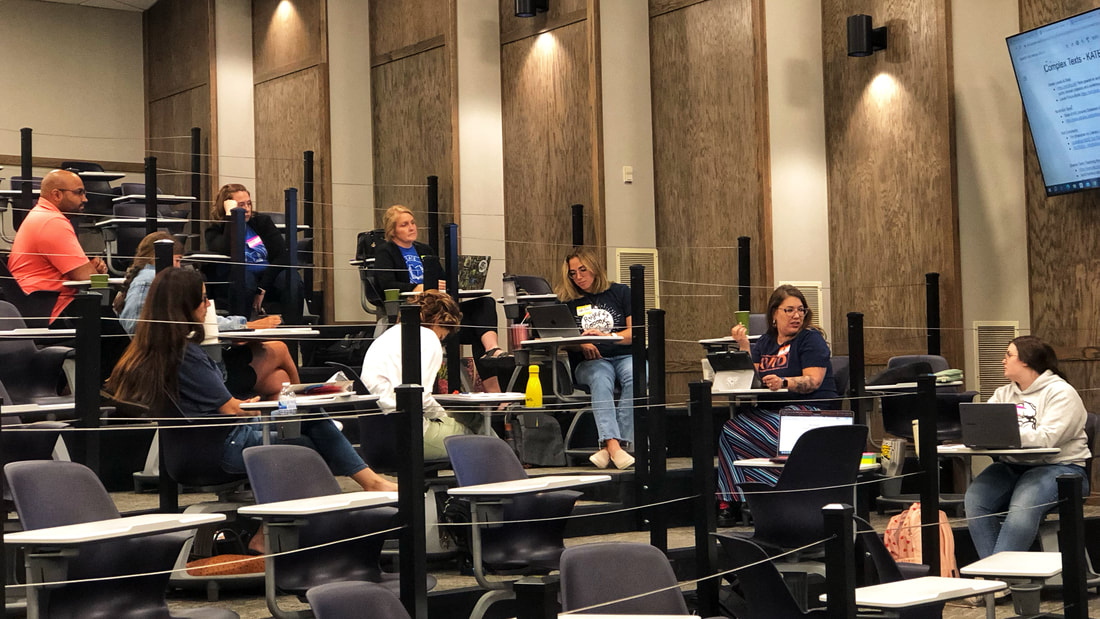|
Educators, do you have insights, lessons, or writings you'd like to share? Read a message from Kansas English editor, Katie Cramer, on a great opportunity to publish work in an award-winning publication. Let's keep the insightful dialogue going! Check out the post to learn more!
0 Comments
Abstract
English language arts is a vulnerable subject. It involves self-expression, serious reflection, and deep discussion in a way that I did not understand when completing my pre-service teaching program. Entering this profession last year, I was pleasantly surprised by the complex subjects my students were eager to write about. Excited, I grabbed ahold of their engagement. We used it as fuel. My students have written essays, podcasts, and blogs on their home-life struggles, the unbelievable pressures of high school, and the microaggressive acts of racism teachers can not quite catch in the hallways. Together, my students and I learned that writing and talking about these issues creates positive change. I loved giving my students the chance to write about and discuss hard topics in my classroom. On the days when we cleared out the mumbo-jumbo of “normal” class expectations, when we simply talked and wrote about real world issues, it was those days that were special. They were meaningful. My kids asked for more days like them, and I tried to honor that request. Andrea Marshbank Seaman High School Abstract
Each year, books are challenged and/or banned from public school libraries across the country and most recently there has been an increased number of books with diverse characters banned from public schools. Removing books from public schools restricts students’ abilities to read and reflect upon these texts. Students have a right to access books depicting characters and events that they can relate to and characters and events that they can learn from. These books can become "mirrors" to the reader or "windows" to the world around the reader. Administrators, teachers, librarians, students, parents, and community members should advocate for access to books of all types for all students. Carolyn L. Carlson Washburn University Abstract As a newly minted teacher, I have begun to look back with fresh appreciation for my year of student teaching and the many people who helped shape and inform my ideas about education. Among those who left their impression on me is one student, Phan, who expanded my vision for the English classroom as a safe place to express and reflect. From this student I learned that a teacher can support by listening without judgment even when she or he does not fully understand. Author
Jenni Bader, Wichita State University Jenni Bader is a recent Wichita State University College of Education graduate and a first-year English teacher at Winfield High School. She has felt the call to serve through teaching ever since first grade when she read about Anne Sullivan in a chapter book detailing the life of Helen Keller. Although her path to professional teaching has been long and winding, Jenni has found many opportunities to share her care for people and her joy in learning along the way. She looks forward to the possibility of each new day and helping each student realize his or her full potential. She can be reached at nachalah@sbcglobal.net Abstract Over the course of history, various groups have challenged, banned, and burned texts out of fear and the desire to control the thoughts and beliefs of a populace. Dictatorial regimes such as Hitler's Nazi-controlled Germany used "bonfires [to] 'cleanse' the German spirit of the 'un-German' influence of communist, pacifist, and, above all, Jewish thought" (Merveldt 524). Modern religious fundamentalism seeks to control a populace either through fear and indoctrination like the ultra-conservative, nearly-literal witch hunt of J.K. Rowling's Harry Potter series when religious leaders of various Protestant denominations feared that the hit young adult book series would teach impressionable minds actual witchcraft. One of the most famous and still frequently taught banned books is Mark Twain's The Adventures of Huckleberry Finn. In this paper the argument is made for the teaching of banned books by a case-analysis of Twain's text that considers the historical context, positive and negative aspects of the text, the harm of censorship, the value of free speech, and how frequently-challenged texts promote critical thinking for students. Author Biography
Nathan G. Whitman, Derby High School Nathan Whitman is an English teacher at Derby High School who has an MA in English, a BA in Secondary Education with an emphasis in English 6-12, and a BA in Creative Writing, as well as an endorsement in English to Speakers of Other Languages from Wichita State University. In addition to heading the school's GSA sponsor, he is also a founder of the Voices of Kansas journal published by the Kansas Association of Teachers of English, a 2014 Horizon Award Winner, and a Kansas Exemplary Educators Network Member. He can be reached at nwhitman@usd260.com. Implementing Vocabutoons in the English Language Arts Classroom: Drawing Their Way to Success10/3/2017 Abstract Although vocabulary acquisition remains a critical to literacy development, teachers infrequently devote classroom time to vocabulary exercises. In this article, the author demonstrates the use of "vocabutoons" as an instructional activity which draws upon students’ multiple literacies—in particular, visual literacy—in order to foster vocabulary development. Tooning is based upon the belief that "[p]roficient readers visualize what they read as they construct meaning from a text" (Onofrey & Leikam 682). Representative artwork created by English Education majors enrolled in a young adult literature course at a university in the Midwest will be featured to highlight the tooning process. Author Biography
William C. Sewell, Dakota State University Dr. William Sewell is assistant professor of English Education and Composition at Dakota State University in Madison, South Dakota. Dr. Sewell taught secondary English, forensics, debate, and theatre in Kansas schools for 12 years. His research interests include multimodal intertextuality, content area literacy, active learning strategies, young adult literature, and middle and secondary English education. He can be reached at william.sewell@dsu.edu. |
Message from the EditorWelcome! We're glad you are here! Archives
March 2024
Categories
All
|


 RSS Feed
RSS Feed